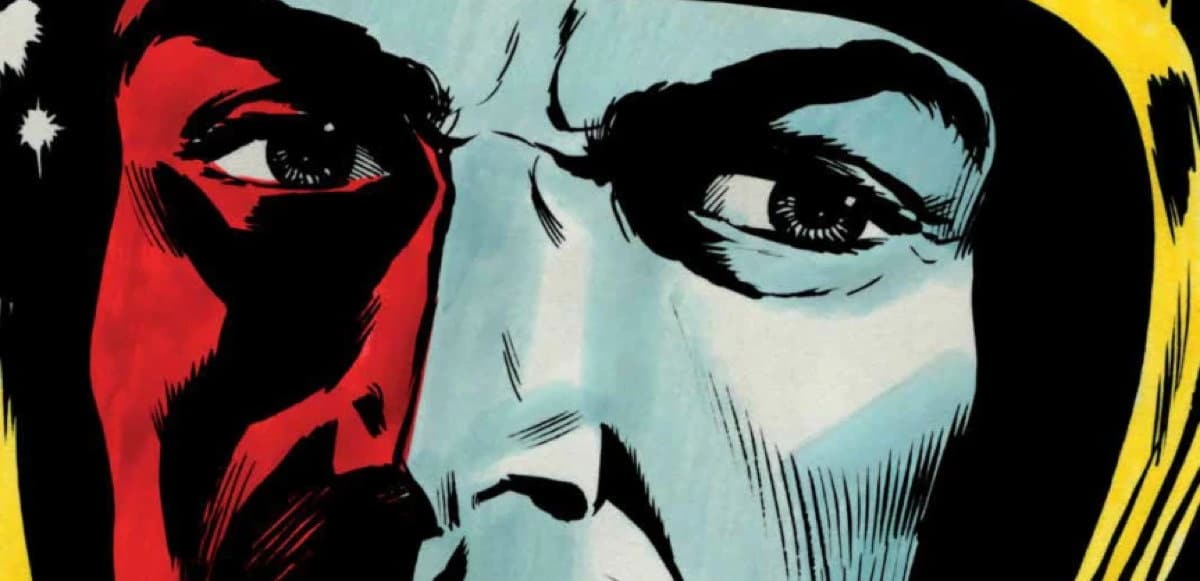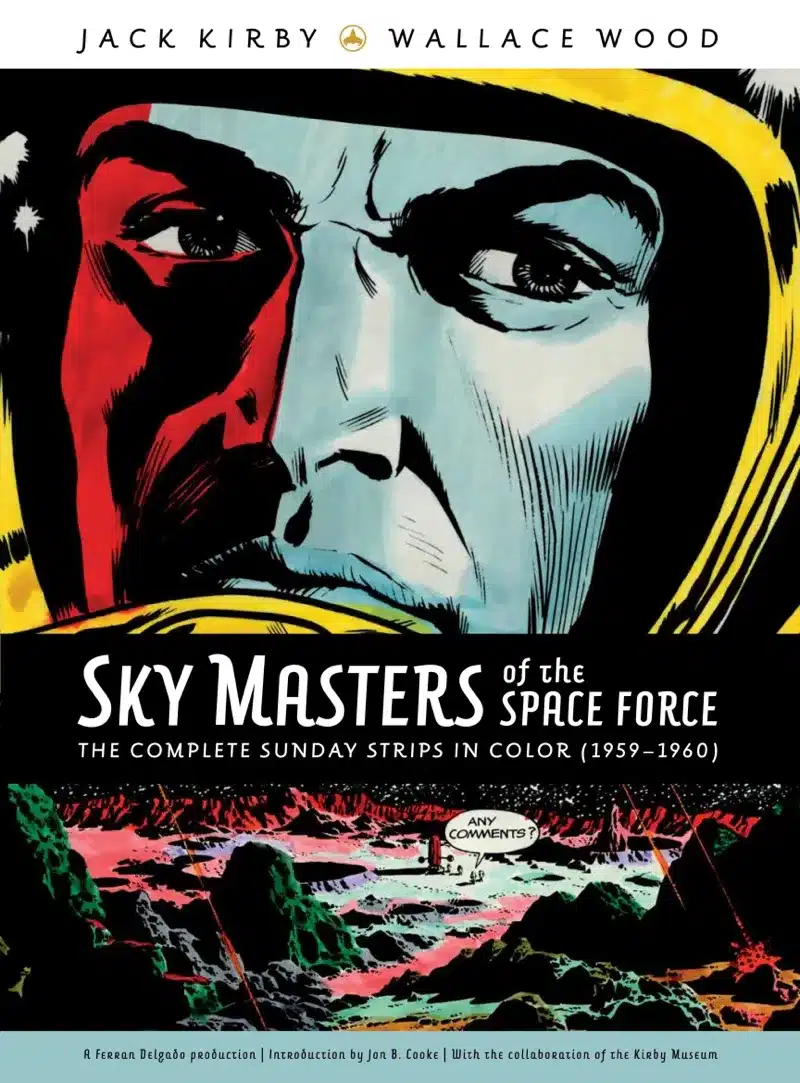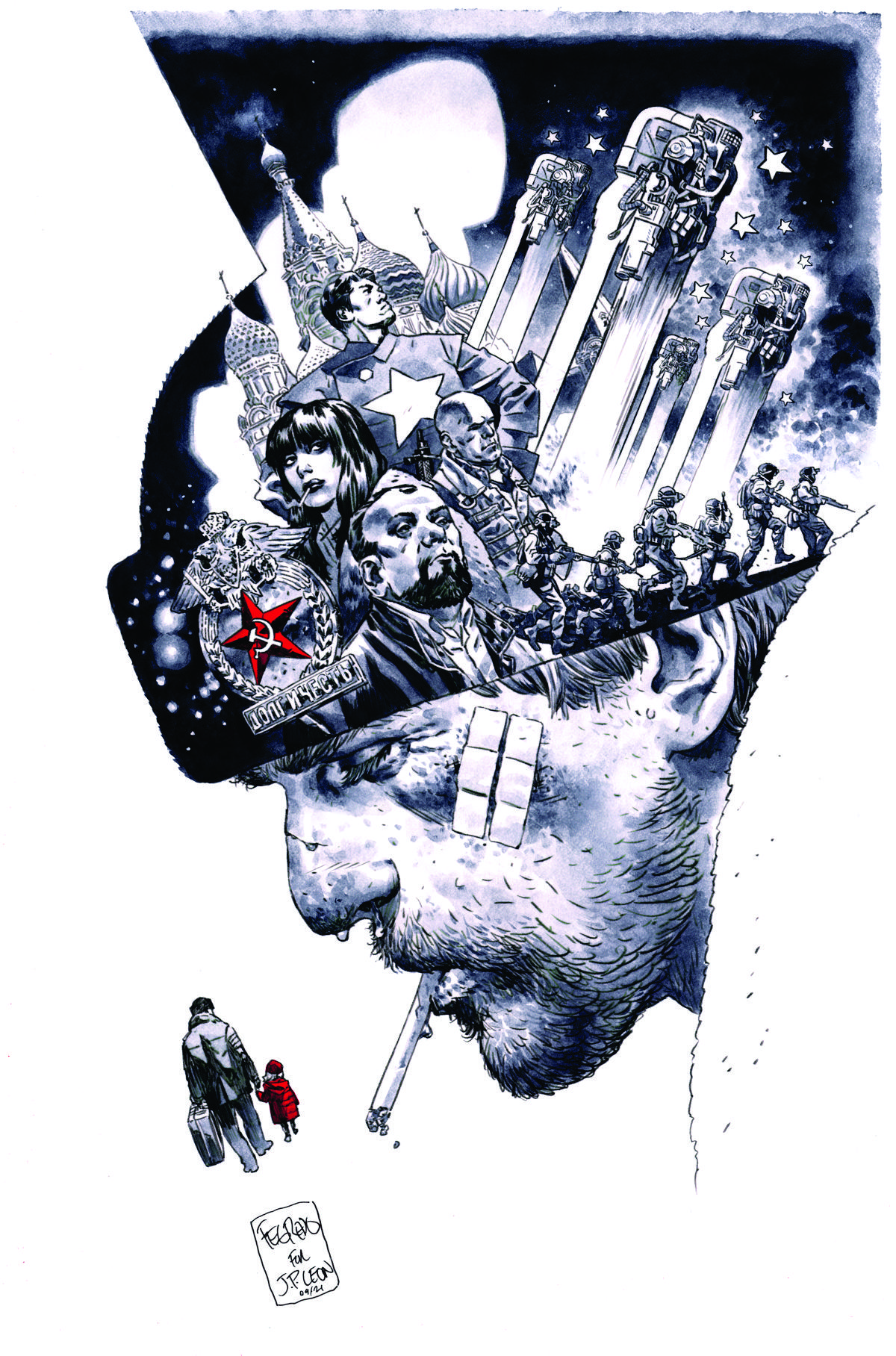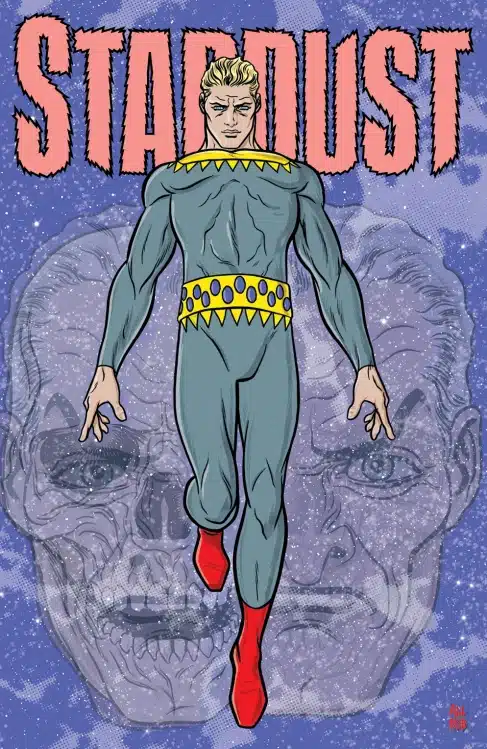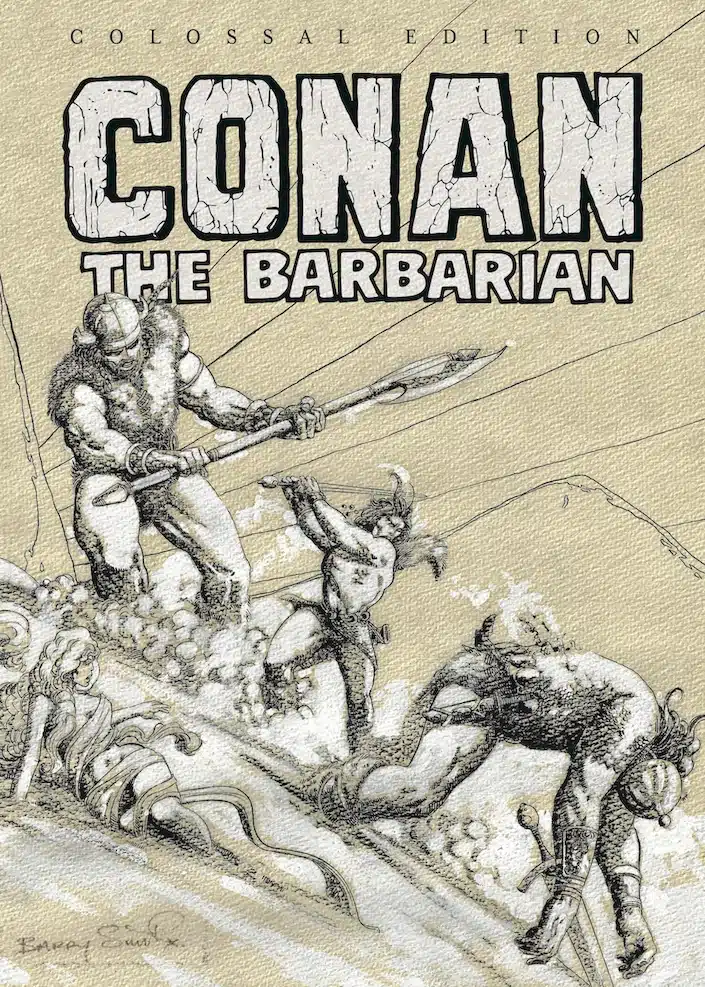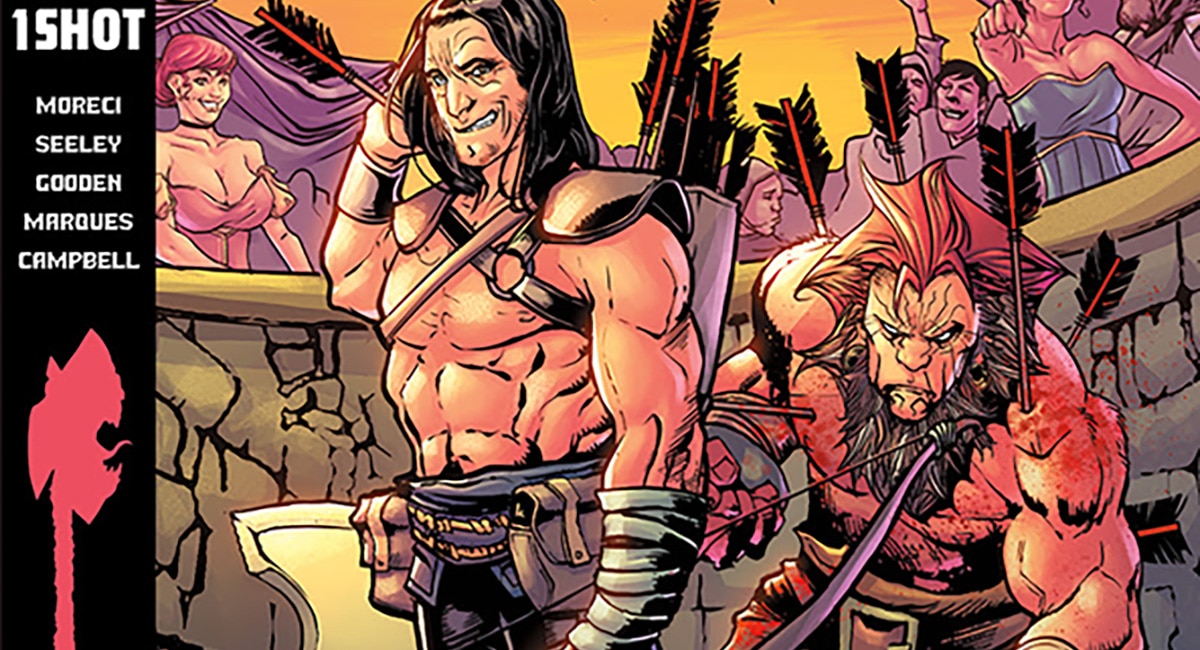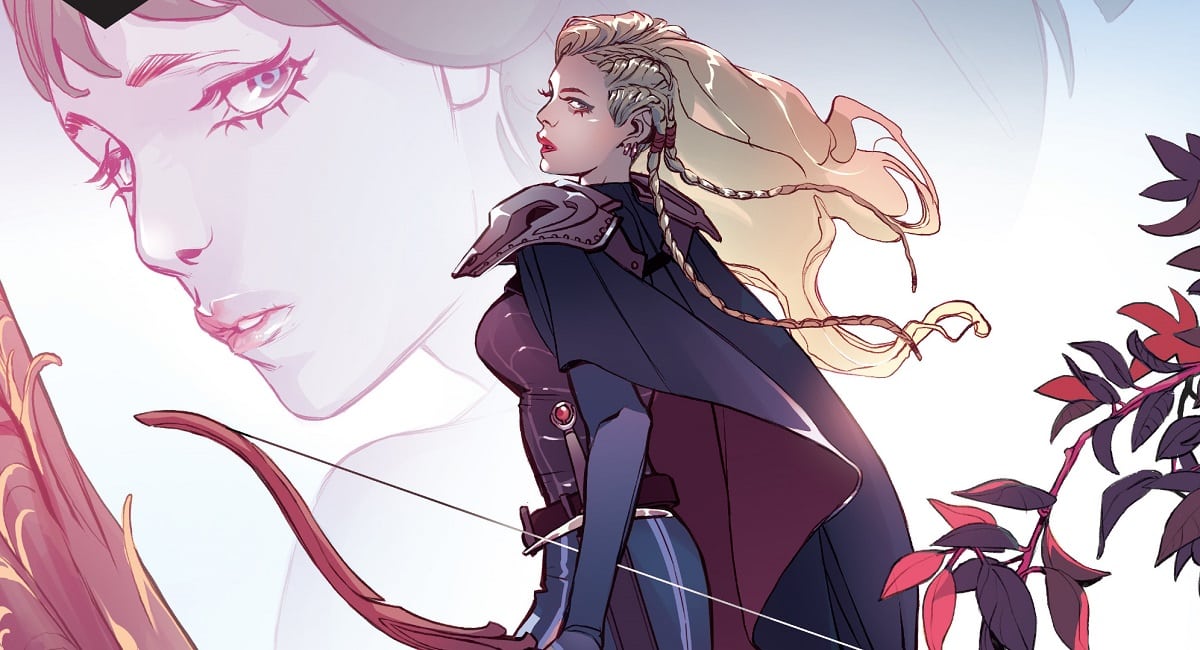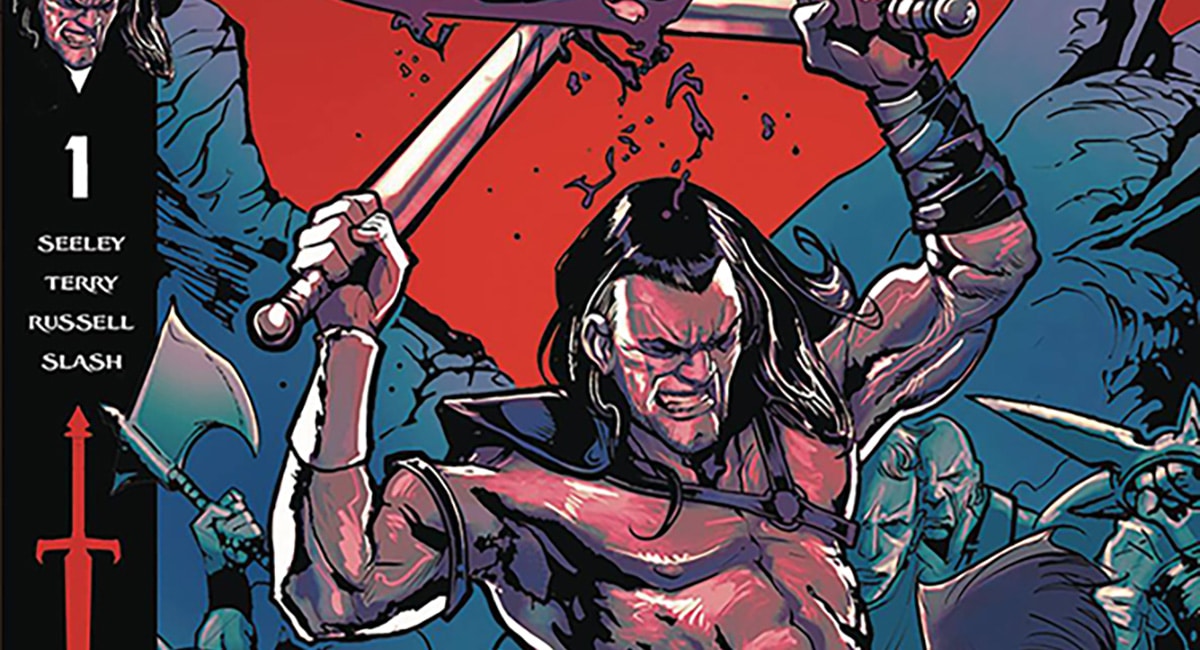Zoop launched as a comics crowdfunding platform back in 2021, offering more services for creators as part of the campaign, from planning to fulfillment. Their timing was good: not only did crowdfunding soar during pandemic times, but industry leader Kickstarter caused controversy with an ill-planned announced shift to the blockchain. The move prompted creators in many fields to start their own platforms, and others to move to BackerKit, IndieGogo and more.
In three years, Zoop has funded many successful campaigns, but it’s now moving into a new phase: raising capital itself via equity crowdfunding on the Republic platform. Callign on its own community for support, it’s a way for the company to raise capital while remaining more independent.
We’ve talked about a lot of Zoop campaigns here, and now it’s time to talk with co-founder Jordan Plotsky about their own crowdfunding campaign.
This interview was edited for clarity and length.
Heidi MacDonald: Jordan, it seems we’re in turbulent times, there’s a lot of stuff in play, a lot of people moving around, a lot of new platforms. We did an interview back in 2021 around the time you launched and I think I asked, isn’t it really hard to build a crowdfunding platform from the ground up? And you said, yes it is. What have you learned in those three years?
Jordan Plosky: That’s a really good question. Early on we made a lot of mistakes and it was a learn as you go type of thing, but now that we’re three years into it, we’ve gotten our heads screwed on straight. We know how to run campaigns. Realistically, our team has done over 130 campaigns now, and I don’t think anyone in the comic space can say that they’ve done more crowdfunding campaigns than us. So after all the trials and tribulations, after the learning curve, we’re really dialed in. We know what works, we know what’s not going to work, and the support that we give only increases the chances of success.
The short answer is we’ve learned a ton because we’ve seen so much, but some of the most important things are…How do I put this? Just a pro tip for anyone looking to do crowdfunding: your number one thing is you’ve got to start promotion way before your campaign starts. Building an email list is your number one tool. These are all things that we knew but now that we’re seeing the evidence and the data, it’s unmistakable. You have to promote ahead of time.
MacDonald: I think that’s another way of saying that in order to crowdfund you need a community base already. You can’t just say “Let me do a Kickstarter and I’ll build a community.” That is not going to work, right?
Plosky: I came from the music industry, as I think you know, I used to be a professional musician, and other aspiring professional musicians would ask me how did you get that gig? How did you build your resume the way you did? It’s the same thing in comics or really any sort of creative profession. It’s not about how good the material is – if you don’t tell anybody about it, nobody will ever know. So as a creative you have to be in business for yourself. You’re an entrepreneur, you have to get that marketing side down as well. And that’s so important and quite frankly very often overlooked by creators
MacDonald: Absolutely. And it’s a hard lesson. But one of the things you wanted to do at Zoop was offer tools for people who maybe didn’t have that complete tool set. Everyone always says, “Heidi, why don’t you do a Kickstarter for this or that?” It’s like…I just mailed my last Christmas present. I’ll be brutally honest. Mailing things out is not a strength of mine. I would need a fulfillment house to help me in any case. So I think you were coming into this offering a suite of tools for people who didn’t want to do it all soup to nuts.
Plosky: The biggest differentiator between us and your Kickstarters and Indiegogos is that you’re not alone. You have a built-in team helping you with everything from figuring out rewards to pricing to strategy to budgeting, getting quotes on what your products are going to be well ahead of the campaign launch. We see a lot of people who have done what look like killer numbers, but they didn’t take the time to properly budget ahead of time and then ultimately wind up potentially in the red. So having a team of people who have been there, like I said, over 130 times now. We know what steps to take to ensure that you’re not going to be underwater on a project and that even includes the fees that you have to pay us for our work. We’re a team supporting the creator. We take a ton of the heavy lift off of our client’s plates. We lower the barrier to entry for crowdfunding.
MacDonald: Right, which is great. What have been your most successful projects?
Plosky: We have quite a few that have broken that six figure barrier. The one that kind of put us on the map in 2021 the Artist’s Edition for the late John Paul Leon, for Wintermen. Our top grossing one is Nick Pitara with Ax-Wielder John which did over $210,000. We had a great benefit anthology called Comics for Ukraine, which had a cover by Alex Ross.
MacDonald: I have that sitting right here by my desk. It’s a beautiful book.
Plosky: So we’re super proud of that – we got to donate $100,000 Operation USA, to be associated with names like Alex Ross, Bill Sienkiewicz, Art Adams, Walt Simonson. We just had another successful one, a Conan the Barbarian sort of artist edition. We ran a campaign for Stardust, this crazy golden age now public domain superhero.
MacDonald: I loved that one.
Plosky: We’ve been having fun and putting out some really cool stuff.
MacDonald: So now you are entering a new phase, the Republic phase. If you could explain a little bit just what this is in layman’s terms and why you’re doing it.
Plosky: The first thing I want to say is yes, we went from “who’s Zoop?” to now when people are talking about crowdfunding, we’re in the conversation with Kickstarter and Indiegogo, and that’s great. We’re thrilled about that and at the same time we’ve been building up our community and trust, we’re delivering projects, we’re taking care of customers. So we have people who have returned multiple times and in fact, dozens of our campaigns, which is humbling to build something that people are so invested in.
But we’re in an interesting place. Zoop is not necessarily like a venture capital backed type of company for a number of reasons that I don’t need to get into but what’s available to us is something called equity crowdfunding. It’s very similar to what we do already except instead of people supporting a campaign to provide some financing to allow a creative project to come to life now with equity crowdfunding you can put down your money. Instead of essentially getting a comic, you’ll own shares in the company. So your investment is actually working capital for Zoop to continue doing what we do and to grow and keep providing creators an outlet for their projects.
MacDonald: I know there are some other companies on Republic, Skybound and Legion M.
Plosky: The other big one in our world was a company called Gumroad. I think Legion M has a slightly different business model in that their investors all become sort of film producers. Equity crowdfunding allows us to maintain control. It allows the community to kind of step up and support something that they love and for us to not necessarily have to answer to venture capitalists or other people who are going to tell us how to run our business, without knowing anything about the world of comics, collectibles, and fandom. So it helps us maintain control. It puts the power into the fan’s hands.
Alongside your investment you get something called a safe note, which is really just an easy instrument for small transactions like this. You could put in 200 bucks, 500 bucks. You don’t have to be an accredited investor. You don’t have to put in $10,000. It’s sort of like fractional investing as well. If you say hey, I want to own a piece of that Amazing Spider-Man #1, I’m gonna put in 100 bucks and if it appreciates in value, my hundred bucks becomes 200 bucks. Anyone can throw in small amounts, any amount that they want and that’s your piece of ownership in Zoop. The cool thing is our early bird offer. Zoop has a $6,000,000 valuation. If you invest early, the first $300,000 committed into the campaign comes in at a $5.1 million dollar valuation. So that’s a 15% discount. That means that your safe note that you invest will have 15% more shares of Zoop in the future.
Not only that, we have an exclusive comic that’s going to be another perk at certain investment levels. We’re gonna have our standard comic, our black and white variant, our virgin variant, a foil variant, a metal variant. We’re gonna have CGC signed graded books as physical perks to incentivize people to invest. So some fun stuff in there on top of the more serious investment type of things.
MacDonald: I know you have worked with VCs before, and it seems now that the VC and stockholder system has just become a way to create something cool, sell it, and watch it get destroyed.
Plosky: There’s definitely that side of things but then also take a look at companies. Of course, we’re not comparing Zoop to Disney by any means, but it’s all about having to grow every quarter. It’s never good enough. It’s always growth. It’s always firing people so that you can get your bottom line up, and that’s old school thinking in my opinion. I think nowadays I just want a great company with a great culture, everybody happy to be working at the company instead of fearing for their jobs. That VC culture drastically changes that so, again, it’s taking that control into our own hands running the company that we want.
The other thing, I’m not gonna lie. It’s incredibly competitive out there. As a direct to consumers crowdfunding platform, we’re competing for the same dollars as fintech companies, AI, all this stuff, and we’re not the sexy hot thing at the moment. So, as good as things can be – because we’ve been a live company that’s generating revenue for the last three years – that might not be enticing enough to these [VC companies] because we’re not the cool thing.
MacDonald: I mean that story really fits into the comics industry because it’s very…so many people are not in it for the money. That leads to a lot of problems but it also leads to a lot of joy. What you just said is super interesting because this is a longer conversation, but why isn’t it enough just to have a nice company that employs people who are happy to work there, who feel loyalty to you because you treat them properly and you make good products and you maintain a financial stability. Why isn’t that enough?
Plosky: It’s just not enough for VCs because their model is they’re taking money from other people and they’re expected to turn $10 into $100, and if they turn $10 into $15 or $20, that’s not a win. If you remember I had another company before this and we tried going that route too. And even if we’re projecting to be a hundred million dollar company, that’s not enough. They’re looking for billion dollar companies. So, as much as I would love to be a billion dollar company, that’s not my top priority.
MacDonald: It just comes at a very interesting time. I think crowdfunding is obviously here to stay and I think absolutely people need a model that includes the services that you offer. So it just seems like a business model that has a place in this industry. I think equity crowdfunding may seem arcane to a lot of comics folks, but it makes a lot of sense because that’s just how this industry rolls.
Plosky: But you know what? The community is amazing. They’re supportive. They understand how this technology works in a fundamental way because they’ve all been participating in it, but backing their favorite books. So it’s a really easy transition for this particular community to potentially just come over and say hey as opposed to getting a book, I’m gonna be supporting and owning a piece of this company that hopefully they care about and see as something valuable for this industry to have for a long time.
MacDonald: Are there any other things coming up for Zoop that you want to mention? I assume that you have plans for expansion or growth.
Plosky: Yes, we have a lot that is coming up. The money that we’re raising actually goes towards advancing all of those new initiatives. We will have a new hire and technology expansion on the platform and some other really cool fun things that don’t just utilize crowdfunding but it’s a little twist that we’re uniquely positioned for. Yeah, there’s a lot of cool stuff that we’re gonna do.
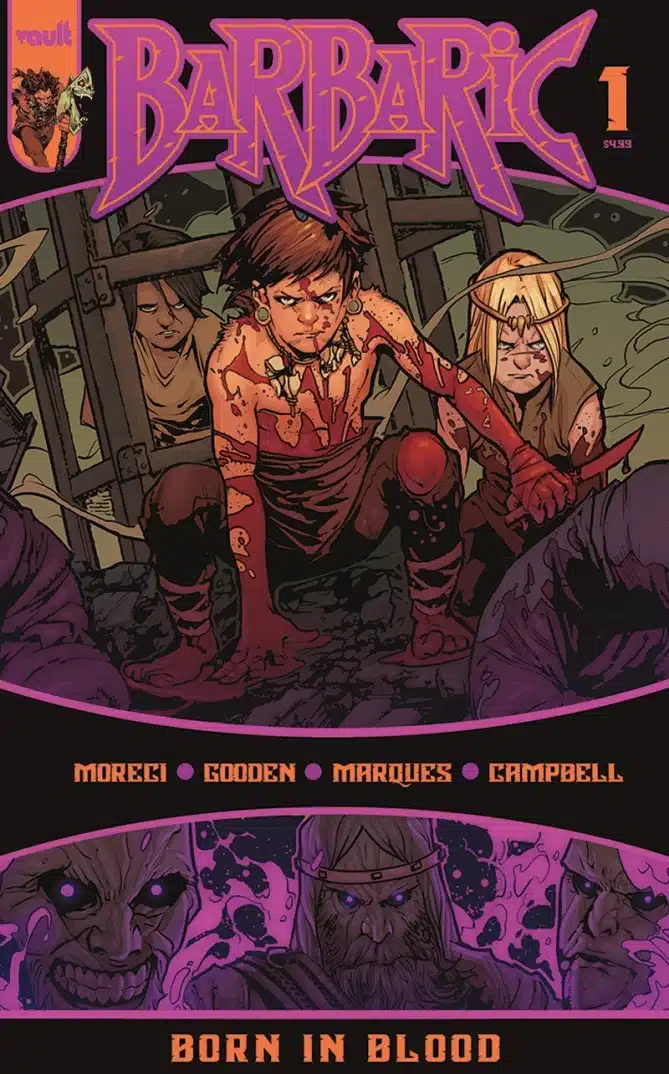
Plosky: Yeah, so the big one that we launched recently is what we’re calling this crowd building campaign with Vault Comics. So it’s not about raising money. Late last year, they had this initiative of sending out free number one issues to retailers and we saw that and had conversations with them about hey, how can we utilize direct to consumer and make this more available to your fan base as opposed to just to retailers? With direct to consumer. they’re still providing free issue #1s but it’s digital. So, there’s no risk for fans. Vaults collects customer data in a way that you can’t from the comic stores. So it’s not just we’re paying all this money to print and ship all these comics and not make anything back. There’s a return on the investment when it comes to this campaign, so for all those reasons it’s kind of like a no-brainer, for a company like that to just come on board and say hey, we just want to grow our user base. We also have campaigns by Chad Hardin, and Jimmy Broxton who I didn’t know before… 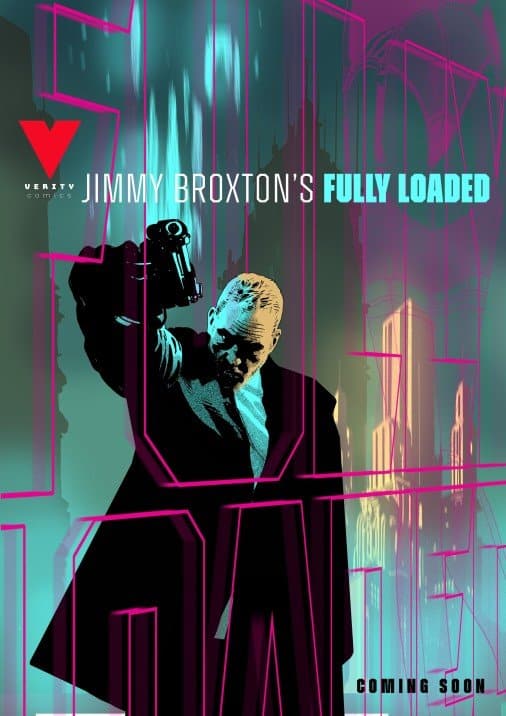
Plosky: Where has this guy been? Why is he not one of the top artists – it is stunningly gorgeous and I’m not just saying that because we’re working with him. We also have a projects with Chris Weston and the late Rachel Pollock – we’re releasing Time Breakers from the 90s. It was in the Helix imprint of DC Comics, but they got the rights back. So now we have a hardcover collected for the first time since the 90s. We have more cool stuff coming – you can check out the coming soon page. We have an art book from Christian Ward coming.
MacDonald: That’s gonna do well!
Plosky: Yeah, he’s crushing it. We’re really psyched.
MacDonald: I think I know the answer to this given everything you’ve just said, but are you happy you took this crowdfunding journey with Zoop?
Plosky: 100%. It’s been incredibly fulfilling and rewarding and seeing the fact that we’ve helped literally hundreds of creators put their projects out. It’s incredible to know these things wouldn’t exist if it wasn’t for us, potentially. At the same time, this is my second startup and I could tell you unequivocally, my God, this is what success looks like versus what I did last time around. So the fact that we’re here, we’re growing is an incredible accomplishment. I’m super happy about that. And hopefully only onward and upward from here.
You can invest in Zoop on the Republic platform here, or check out their upcoming offerings here.


